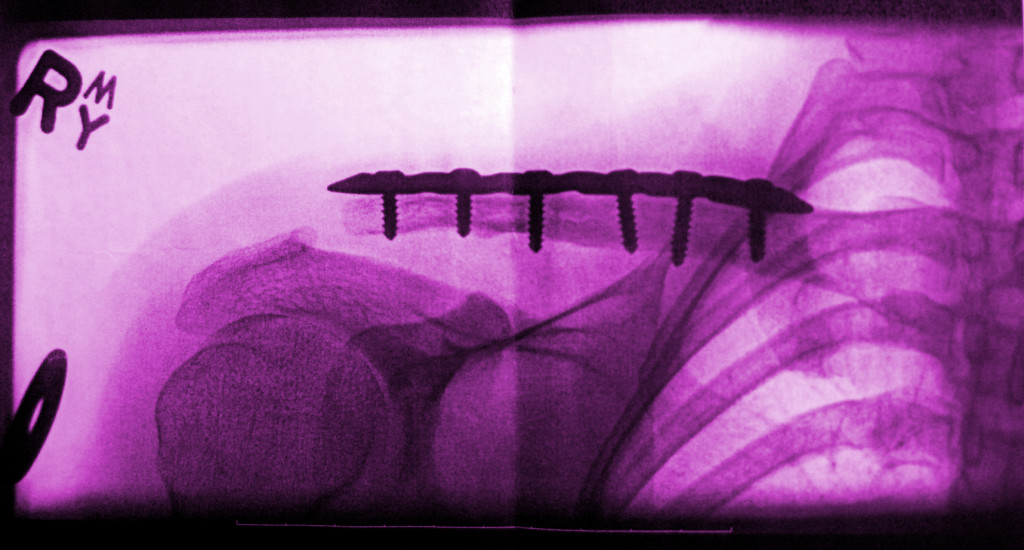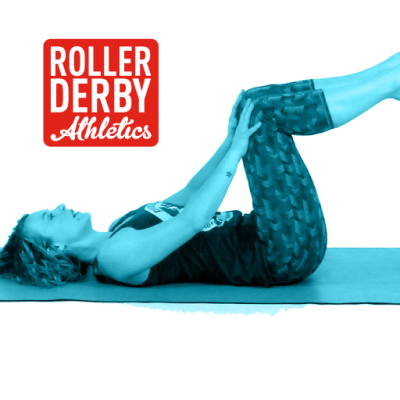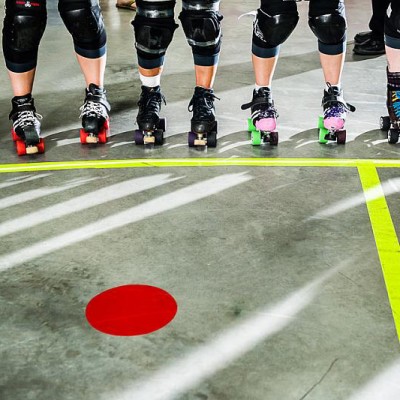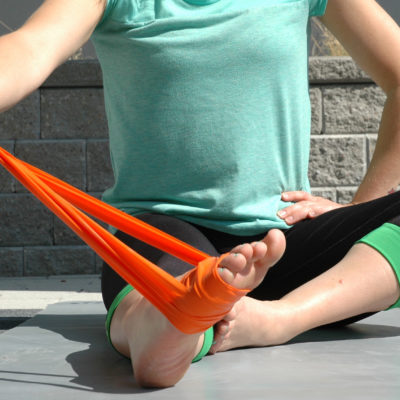Several times a week skaters email me, asking what they should do to return to skating or working out after such-and-such injury. The world of sports injuries, re-hab, and pre-hab can be complex and confusing. Unfortunately, lack of awareness and understanding of the roles of different health professionals often causes derby athletes to suffer more than they need to. It can also lead to longer rehabilitation times and a higher risk of re-injury.

This series is an attempt to give people some tools and ideas about whom to see, and when, to get back on their skates as quickly and safely as possible. Let me be VERY CLEAR, however, that I am not trying to dispense medical advice here. I am not a healthcare professional! You may need to seek the services of doctors, surgeons, physiotherapists, massage therapists, chiropractors, acupuncturists or fitness instructors. The pointers that follow are my opinions and insights, based on extensive personal experience with sports injuries (sigh…), including both positive and negative experiences with all of the above practitioners.
Part 1 is my advice for where to start with an acute injury – in other words, if it was sudden, severe, required surgery/ a splint/ a cast, if you are limping, or if you don’t have normal range of motion (e.g. you can’t lift your arm above your injured shoulder).
In most cases you’ll have to visit your GP or family doctor first to get your league’s insurance or personal insurance to cover your medical costs, or, in a worse scenario, you’ll be working with an orthopedic surgeon if you’ve really had a major injury.
#1 – Act Like a Pro. Apologies to the family doctor reading this who really understands sports injuries, but the general rule with a visit to the GP is that you must go in advocating for yourself. GPs are generalists, not specialists. They may not have spent more than a couple of classes in med school dealing with soft tissue injuries, and may not be the best person to either assess the damage or fix the problem. Ask to be referred to a specialist and/or physiotherapy. Explain that your sport is a very important part of your life, something that you train 4-6 days a week for (say this even if it’s not true), and you wish for her to approach your injury as though you were a professional athlete. Name your local popular mainstream pro sports team – for example, “pretend I’m a wide receiver for the Seattle SeaHawks. I want you to take the same aggressive approach to rehabilitating this injury as you would take with him.” This tip may not apply if you’re working with a surgeon, but I hear a ton of stories of people’s family doctor sending them home with a prescription for T3s and a pat on the knee, and nothing further to help rehabilitate the injury.
#2 Prepare for the Worst. If you are lucky enough to have free healthcare (like here in Canada), you’ll be unlucky enough to have a ginormous wait time to see a specialist, get a scan, or get surgery for a non-emergency injury. Some doctors will hold off on giving you a referral, taking a wait-and-see approach to see if it will be needed. Do everything in your power to convince yours to get proactive with the referrals – you can always cancel if you’ve healed by the time your specialist appointment or CT scan rolls around. Also – always ask if you can be put on the cancellation list at the specialist’s office.
#3 Get the Re-Hab you Need. Insist upon seeing a physiotherapist (“physical therapist” in the USA) if your injury is acute. The physio is the one who will give you the right exercises and training to be able to use your injured bits properly again. Get your doctor to help you navigate your local insurance issues here. Where I live you do not need a referral to see a physio – just call up for an appointment. However *be aware of your league’s and/or private health insurance requirements*. They may require a doctor’s prescription in order to be covered. You’re in charge of your own health and finances so figure out what’s required, and make it happen. You owe it to your team.
#4 See Someone Great. Get a trusted teammate to recommend a physio she’s been happy with. In fact, your league should probably keep a list somewhere of recommended health professionals. Use them! (While you’re there, ask if they want to sponsor your league…!) Ideally your doctor should be able to write you an open prescription, without attaching you to a particular clinic for the referral.
#5 Be Prepared to Cut and Run (Limp). If your doctor won’t refer you to physio for an injury you feel is significant, and you’re not able to return to skating because of it, find a new doctor. Be especially afraid if the doctor doesn’t do more than 1 or 2 tests for strength and/or range of motion to assess your injury! Ask your teammates for recommendations. A physician who doesn’t take your injury, your sport, or your desire to return to skating seriously is not someone you need on your medical team.
As I’ve said, the tips above are more relevant for acute injuries – Part 2 of this series will deal with chronic injuries.
Stay healthy!

 Pre-Hab: How to Engage Your Core
Pre-Hab: How to Engage Your Core  The Top Ten Exercises for Roller Derby Athletes
The Top Ten Exercises for Roller Derby Athletes  Fresh Meat – You Got This!
Fresh Meat – You Got This!  How to Improve at Derby’s 27 Laps Test
How to Improve at Derby’s 27 Laps Test  Prehab! Feet and Ankles
Prehab! Feet and Ankles